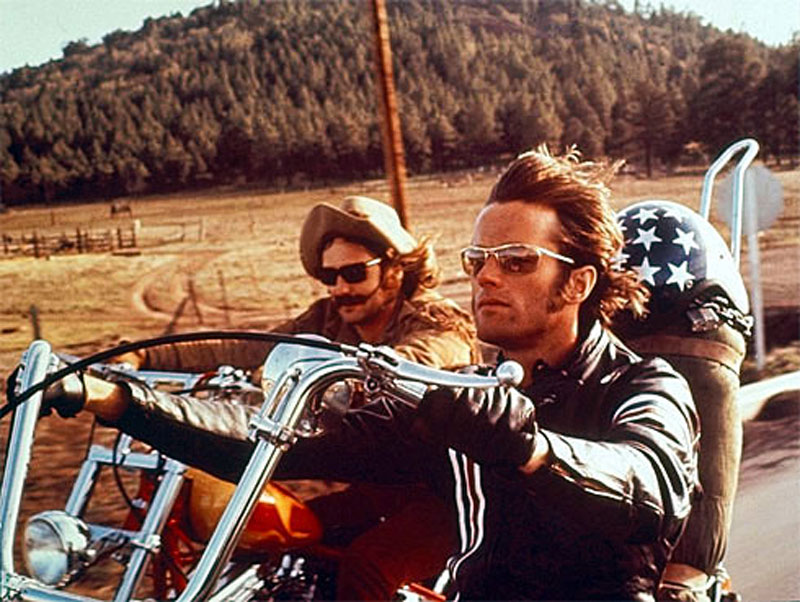My favorite era of film runs from Easy Rider to The Man Who Fell To Earth, nearly a decade when auteurs were preeminent in Hollywood. So, my least favorite movies (though I recognize they aren’t bad movies) are Jaws and Star Wars, the blockbusters that marginalized personal films, that made the auteur the exception as opposed to the rule, that led to the dumbing down of not only mass movies but B films as well. For every Tarantino or Coen brother now, there are many Michael Bays. Not that Bay isn’t an auteur in his own way, but his vision is global and post-literate, democratic, yes, but only insofar as he seeks to titillate large audiences long enough to pick their pockets. His crass vision is particular to him not because of some great talent but because he’s the one who currently has control over the special-effects crews. It’s spectacle without a soul.
At Grantland, Andy Greenwald makes a compelling case that TV, which exploited the yawning opening in the auteur market, giving us brilliant, visionary shows like The Sopranos, The Wire, Mad Men, Breaking Bad, Curb Your Enthusiasm and Louie, among others, during a relatively short span, has likewise made a fatal shift toward the blockbuster. An excerpt:
“In a conversation last summer, Shawn Ryan, himself the creator of one of the Golden Age’s finer scriptures, The Shield, pegged the end of the era to the fall 2010 premiere of The Walking Dead. Not as any referendum on the zombie show’s quality but more of what it signified: by tripling the potential audience for a cable show and by doing so with genre spectacle, The Walking Dead was television’s Jaws moment. Like the flowering of American film in the ’70s, TV’s Golden Age was the product of new companies (or, in this case, channels) empowering creators because they didn’t know what else to do. The blockbuster success of The Walking Dead — along with Game of Thrones and True Blood — provided a way out, or at least around, the complicated power dynamic of the omnipotent showrunner. Vampires and dragons are, after all, far more dependable draws than David Simon’s cantankerous take on the social safety net. (To my mind, the Golden Age was also sunk by the rise of prestige simulacra, hollow shows like The Killing and Hell on Wheels that ganked the ponderous pacing and adult themes of contemporary critical darlings without any of the singular wit or perspective.)”
Tags: Andy Greenwald

